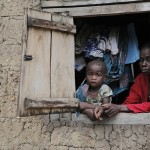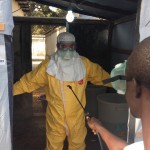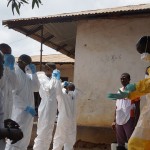Despite more than 25 documented outbreaks of Ebola since 1976, our understanding of the disease is limited, in particular the social, political, ecological, and economic forces that promote (or limit) its spread. In the following study, we seek to provide new ways of understanding the 2013-2015 Ebola pandemic. We use the term, ‘pandemic,’ instead of ‘epidemic,’ so as not to elide the global forces that shape every localized outbreak of infectious disease. By situating life histories via a biosocial approach, the forces promoting or retarding
Continue reading →
Dr. Ernest Bai Koroma, the president of the Republic of Sierra Leone, was having trouble “getting to zero,” and his underlings were getting antsy. “We need one more push,” said Major Palo Conteh, the commander of Sierra Leone’s National Ebola Response Centre (NERC) and a former Olympic quarter miler. “It’s like in the 400 meters when you’re 20 meters from the finish line, that’s the time to kick hard.” Brigadier General David Taluva, a jovial officer with the physique of a shot putter, had other
Continue reading →
Ebola’s reputation is fearsome. Its horrifying symptoms, quick human-to-human transmission, and exotic locale seem ready-made for a thriller movie. Indeed, in the midst of the largest Ebola virus outbreak ever, a real-time script is emerging. The story goes something like this: tribal habits, including archaic burial customs and a penchant for bush meat, have led to the emergence and spread of Ebola virus disease. The solution to the terrifying epidemic is to put patients in treatment centers, which are set up and staffed by foreign
Continue reading →



